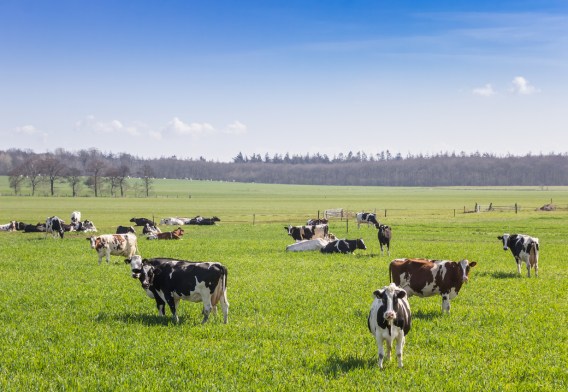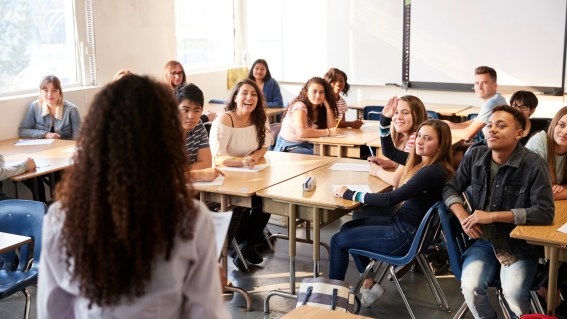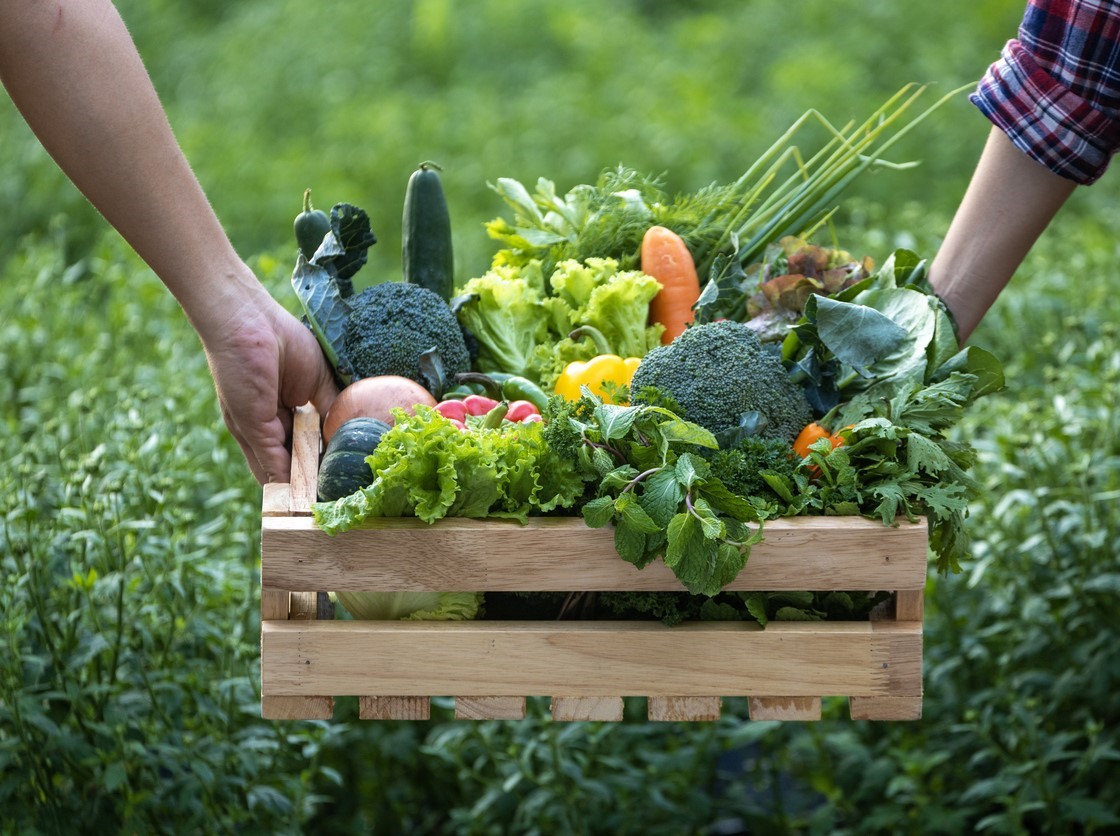Important new resources for schools
Karyn Knox, Chief Development and Partnerships Officer at Educated Choices Program looks at free resources now available to schools around the world.
The Anthropocene Era
We live in the Anthropocene Era – the geological epoch shaped by humans and the way in which we live.
Climate change, the defining challenge of our era, casts a shadow over the very foundation of our planet, urging academia to delve deeper into its multifaceted impacts and seek innovative solutions to safeguard our future. This responsibility does not just lie with the scientists and researchers working to implement significant systemic changes but also with the educators in classrooms who are preparing young people to live in our ever-changing world.

Nan Province, Thailand – decades ago this area was an impenetrable jungle
Not a day goes by that we don’t witness the impacts of our global environmental struggles. We see communities experience devastating floods, see regions of the world hit by abnormally destructive storms and hear of unprecedented rates of extinction among wildlife populations due to deforestation and loss of habitat. Some of us can walk outside and witness smoke in the sky from large forest fires that burn thousands of miles away, and other impacts that hit a lot closer to home. Many are experiencing droughts and record-high temperatures that have widespread effects resulting in the loss of crops both on a commercial scale and in local gardens, as well as the decline of human health, both physical and mental. These examples only scratch the surface of the serious issues we face as a global society.
Contributors to environmental degradation are as widespread as their effects. The discussions surrounding this topic usually focus on activities such as oil extraction, the burning of fossil fuels, plastic use or poor recycling infrastructure. While these areas do contribute enormously to environmental concerns, one area that usually gets less attention is our food system. In this area, even more than others, we, as consumers, hold the power to make small changes that can lead to larger systematic reform. As educators, it is an opportunity to help youth understand how they can be part of the climate solution.
The role of food in the climate crisis
Our food system touches nearly every aspect of our lives and the world around us. A thorough understanding of the scientific links between food and the health of our planet is key to navigating the present and future as an informed consumer. The popular Western Diet’s heavy reliance on animal products is proving to be highly unsustainable with our growing population and corresponding dietary demand. The heavy use of finite resources, the rapid release of chemicals and greenhouse gasses and the excessive amount of waste created at every stage of the process are a few of the issues that make our current food system problematic for our planet. With projections of a 70-90% growth in food demand by 2050, we must change how we feed the world.

Among the finite resources used within agricultural food systems are land and water. Agriculture currently takes up 50% of the world’s usable land, 75% of which is used for livestock and feed. This land was often once forested, and the clearing of the trees not only leads to the loss of biodiversity but also decreases the function of forests as carbon sinks, natural reservoirs that absorb and store carbon dioxide (CO2) from the atmosphere. Water is another essential natural resource, and agriculture is the largest global consumer of water, accounting for 69% of global freshwater withdrawals. According to Stanford University, “the meat and dairy industries alone use one-third of the Earth’s fresh water.” How can we continue to feed the world in this manner when so many finite resources are used for animal agriculture when it only provides 17% of the world’s calorie supply? The answer is simple: we can’t.
Building student agency
Young people are growing up in an uncertain world, constantly informed of our environmental struggles and, in too many cases, are void of hope for the future. They often find themselves feeling that they have no control over their own lives and suffer from mild to severe climate anxiety. What most young people don’t know is that they have the opportunity and ability to be part of the solution to our environmental crisis by taking small actions every day.

These actions can come in the form of personal food choices. Educating students about the scientific facts surrounding the intersectionality of our food system and climate change, along with many other environmental, health and societal issues we face today, can help them make daily choices that support the type of world they want to live in. Empowering them to take small and approachable personal actions that can lead to systemic change through collective consumer demand can give them hope for their future and help alleviate the suffering of climate anxiety.
Free curriculum resources

By using free, innovative, and accessible food system education tools, such as those provided by the Educated Choices Program (ECP), into your curriculum and encouraging self-expression in your students through accompanying activities and projects, you can give youth the knowledge they need to take action. ECP offers easy-to-implement tools and ideas to bring these education initiatives into many areas of study. These innovative on-demand academic resources are created by teachers for teachers and meet academic standards in all 50 US states, all Canadian provinces and many other regions of the world. The educational videos and accompanying lesson plans, quizzes, homework, and activities are designed for students ages 12+ and address the topics of deforestation, water degradation, climate change, ocean acidification, food waste, and more. All topics are covered in an easily accessible and non-judgmental manner, allowing for critical thinking among the student body and for easy integration into curricula cross-departmentally.
Food touches every aspect of our lives, and education about our food system should be an integral part of a holistic school sustainability program. Learning to navigate simple daily life choices that have lasting impacts on our planet can help young people build a brighter future and give them a sense of control over their lives. It is the foundation upon which to build a healthier and more sustainable food system. That education can occur in your classroom.
 Karyn Knox, is Chief Development and Partnerships Officer at the Educated Choices Program combining her non-profit fundraising experience with her corporate leadership experience to help ensure ECP’s continued success.
Karyn Knox, is Chief Development and Partnerships Officer at the Educated Choices Program combining her non-profit fundraising experience with her corporate leadership experience to help ensure ECP’s continued success.
FEATURE IMAGE : Climate friendly foods – https://www.istockphoto.com/portfolio/Akarawut?mediatype=photography
Support Images: Nan Province, Thailand – by Boudewijn Huysmans on Unsplash, Cows – by venemama on iStock
Students & ECP- kindly provided by Karyn

